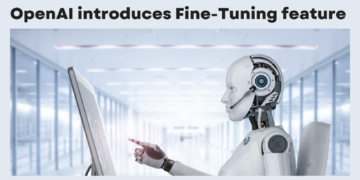MIT Technology Review recently published an informative article highlighting the impact of AI on drug development and how it is changing the pharmaceutical industry by speeding up the process of clinical trials.
What does AI in drug development mean to patients receiving treatment – A Success Story
“Patients can have this terrible experience of going in and out of hospital, sometimes for years, getting drugs that don’t work.”
Richard Law, Chief Business Officer of Exscientia
Doctors at the Medical University of Vienna enrolled an 82-year-old man with aggressive blood cancer in a trial. The trial used an AI-powered drug matchmaking technology developed by a UK-based company, Exscientia.
The technology paired the patient with the necessary drugs, considering biological differences between individuals. Using Robotic Automation and Machine Learning models, researchers tested over 100 medications on small tissue samples from the patient. The process allowed an exhaustive search for the right drug. The team found an effective drug for the patient without subjecting him to multiple courses of chemotherapy. He is now in complete remission!
What exactly is AI doing in clinical trials?
Developing new drugs from scratch involves several steps –
- Identifying a target in the body
- Designing a molecule that will interact with that target
- Testing the molecule in a lab, and
- Testing it in humans for safety and efficacy.
Traditionally, chemists have used trial and error, screening candidate drugs by putting target samples into compartments. They then add different molecules to observe reactions. However, this process is time-consuming and often fails, with the high cost of developing a successful drug.
A new generation of AI companies is using Machine Learning to address the failure points in the drug development pipeline. They focus on selecting the right target in the body and designing a suitable molecule to interact with. The process helps them identify the patients the molecule is most likely to help.
Machine Learning can automatically build complex models by harnessing vast amounts of data, including drug and molecular data. The models can predict how drugs might behave in the body, allowing many experiments in silico. ML models can sift through vast pools of potential drug molecules to determine the ones with the best chances of success.
Many companies, including larger pharmaceutical players, are now using Natural Language Processing to mine data from scientific reports. These reports go back decades and include gene sequences and academic papers. Encoded in knowledge graphs, this data captures causal relationships. Machine Learning models can then predict the most promising targets for treating a particular disease.
AI can help speed up clinical trials
Exscientia, a UK-based company, uses Machine Learning to revolutionize the drug development pipeline. In addition to matching patients with existing drugs, the company is also designing new ones with the help of AI. Two drugs developed by Exscientia using this approach have already entered clinical trials, and two more are on the way.
The goal is to make drug discovery faster and cheaper by using Machine Learning. ML can predict how potential drugs might behave in the body and eliminate dead-end compounds before testing. This approach attracts significant investments, with hundreds of startups exploring the use of AI in the pharmaceutical industry.
According to Adityo Prakash, CEO of California-based drug company Verseon, there is a need for new drugs to treat diseases that currently have limited treatment options and often come with long lists of side effects. To facilitate this, new labs are being built around the world, with around two dozen drugs developed with the assistance of AI now in or entering clinical trials.
Who is trying to do what with AI in pharma?
Generate Biomedicines, a startup founded by Flagship Pioneering in Cambridge, Massachusetts, uses generative AI to manipulate random strands of amino acids into protein structures with specific properties.
Absci, another startup, is also using Machine Learning to redesign existing antibodies to make them more effective at binding to foreign matter.
Apriori Bio, also a Flagship Pioneering startup, aims to develop vaccines that can protect against a wide range of viral variants using Machine Learning to predict how well covid-fighting antibodies will work against billions of potential variants.
Verseon uses AI to survey this vast ocean of possibilities and has produced 16 candidate drugs, one already in clinical trials, for various diseases. The company simulates physics problems on the interaction between drugs and proteins in the body, using AI to model molecular interactions.



























